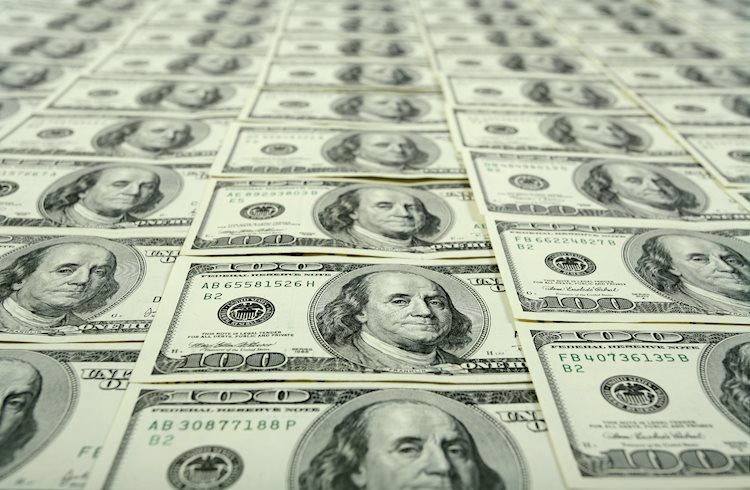Products You May Like
- USD has been strongly supported on what has shaped up to be a very much risk-off Friday.
- DXY has broken above a key downtrend and eyes a move towards 91.00.
USD has been strongly supported on what has shaped up to be a very much risk off final trading day of the week. Most G10/USD pairs have seen significant weakness, aside from CHF/USD and JPY/USD, given that the two currencies are also considered “safe havens”. Thus, the US Dollar Index (DXY) has rallied back to fresh highs on the week in the 90.70s and has broken above a key downtrend that, from a technical perspective anyway, opens the door to further upside towards the psychological 91.00 level and the index’s 50-day moving average just above it at 91.063.
Start of new period of USD strength, or dead cat bounce?
Though President-elect Joe Biden is unlikely able to get the entirety of his $1.9T stimulus package through opposition in the Senate (60 Senators will need to vote in favour of the package in its current form in order to avoid a filibuster), further stimulus is undoubtedly on the way (a simpler, smaller package will only require a simple majority, which the Democrats already have.
The debate that has been raging ever since the Democrats clinched that all-important majority in the Senate back on 6 January has been what impact will this have on the US dollar. So far, the bulls have been winning the argument.
In anticipation of further economy-boosting stimulus, which will require a lot of new debt issuance, nominal US bond yields have moved significantly higher over the last 10 days and though the move higher in real yields has been much less (much of the upside in nominal yields is a result of higher inflation expectations), this has still been taken as a USD positive.
Market participants, who were for the most part very short USD heading into 2021 seem to at the very least be taking profits on these shorts, even if they are not sold on going outright long USD just yet.
An area of significant medium-term resistance looms to the upside above the 91.00 mark. If the USD bulls can push the index through this area, this will send a signal that this turn around in the US dollar’s fortunes is “for real”. Failure might open the door for another prolonged period of downside.
Fundamentally speaking, most market commentators, for now, retain their long-term downwards bias on USD for a few reasons summarised below:
1) Amid growing speculation that more US fiscal stimulus will drive a much faster than previously thought US recovery (not to mention a faster rebound in inflation), Fed Chair Jerome Powell and the majority of other FOMC members that have spoken recently have been eager to reassure markets that the Fed will, as it has been saying it would do all along, maintain highly accommodative policy for the foreseeable future. Reducing asset purchases will be the Fed’s first means of withdrawing stimulus and markets were starting to bet that this could happen as soon as 2021, but Powell and others pushed back against this notion, saying it was far to soon to even be talking about it. The risk that the Fed surprises the market in just how dovish it stays in the face of a surge in economic activity and prices later in the year could deal the US dollar some damage.
2) 2021 ought to be a great year for risk appetite given expectations that mass Covid-19 vaccinations will facilitate an aggressive economic rebound later in the year. This ought to be great for stocks, industrial commodities and energy, emerging market assets and more risk-sensitive currencies. All of this will typically come at the expense of the safe-haven US dollar.
3) Further US fiscal stimulus will not only be deficit-financed (worsening the US government’s fiscal position, a typical USD negative), but is likely to worsen the US trade deficit, which is itself a structural USD negative (more Americans selling USD to buy foreign goods than foreigners buying USD to buy American goods). Higher debt-financed consumption of goods and services in the US will not automatically boost US production of goods and services and, inevitably, a large portion of this consumption will have to draw on production that happens abroad.
DXY eyeing further gains
For a technical perspective, things are looking bullish for the DXY right now. The index just broke above a key downtrend linking the 7, 9, 21 December and 11 January highs (breaking this level roughly when it moved above the 90.60s) and has since retraced to retest this level, which successfully acted as support and now the index is back at highs of the day in the 90.70s. The door has been opened, technically speaking, for a move towards the psychological 91.00 level and the December 21 high and 50-day moving average just above it. Early December highs around 91.20 will also be worth watching.
DXY four hour chart


-637463349580484904.png)